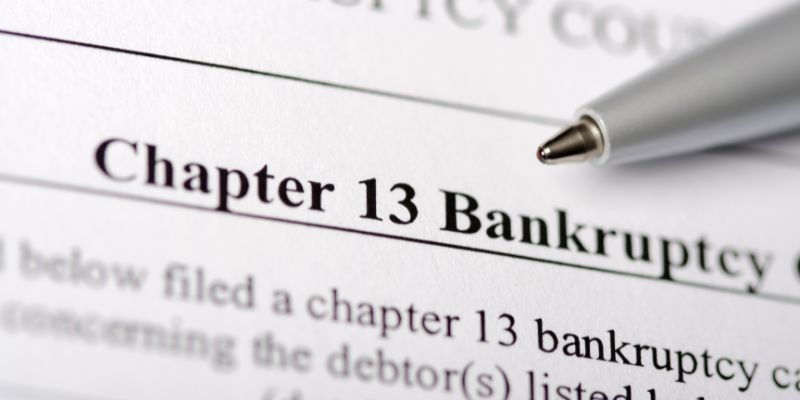Financial debt can have a significant impact on your mental and physical health. With seemingly insurmountable debt, creditors calling you, and letters threatening legal action, it may appear that there is no way out. But not all debt is debilitating. For certain situations, Chapter 13 bankruptcy can be a very viable option.
Bankruptcy can be an intimidating word. There are many negative implications that come from such a decision. However, understanding what it is and how it works can help remove many of the stigmas. The goal of bankruptcy is not to hurt an individual but to help them financially reset themselves and recover from debt.
Here are two ways in which to file bankruptcy. The first is Chapter 7, and the second is Chapter 13. Knowing more about Chapter 13 filings can help you determine if it is a viable option for you.

Chapter 13 bankruptcy seeks to reorganize the debt that a person owes. Often, it is for those who have higher incomes and still have some disposable monthly income that can help to pay all or a portion of the debt. Because there are still opportunities to pay, Chapter 13 allows debtors to reduce the amount of debt owed.
Unlike a Chapter 7 filing that seeks to eliminate all debt, Chapter 13 filings offer debtors additional benefits, making it a more attractive option. These benefits can include the ability to catch up on auto loans or mortgage payments, wipe out certain liens from your home, or reduce the amount to pay on your auto loan if the loan is higher than the value of the car. Additionally, a Chapter 13 filing allows you to keep your assets, including those that are considered nonexempt.
The amount of debt owed under a Chapter 13 filing is determined by your income, your expenses, and the type of debt you owe.
The typical debtor who files for Chapter 13 bankruptcy is someone who:
Filing for Chapter 13 requires a little more planning than just submitting the file. You must also file a proposed plan that will outline how you want to repay your debts. Considerations under this plan include the money you currently have, how much you have left over each month, and what reasonable payments may look like. In addition, the plan will need to look at who you owe money to and the priority with which they need to be paid. Priority payments are made for debts such as back taxes or child support. Other debts, often referred to as "unsecured debts," may be paid back in part. These include things like credit cards and medical bills.
The length of your Chapter 13 plan will run for three to five years, as defined by law. Three-year plans are generally for those whose income falls below the median income level, whereas those above it file five-year plans. For the repayment plan to be accepted, it must meet the following three requirements:
Under Chapter 13, you must begin paying on the plan within 30 days of filing. Payments must be made directly to the trustee of the debt, either directly through your employer or through direct deposit if you are self-employed.
There are many advantages to a Chapter 13 filing:
A Chapter 13 plan can include some disadvantages:
While these are just a few, they represent the greatest considerations.
A: One of the greatest protections that a person receives from filing Chapter 13 bankruptcy is the ability to stop any foreclosure processes that may be currently in place. This also allows time to catch up on past-due mortgage payments, which can help ensure that payments made during the life of the plan are on time.
A: Your credit report will show a Chapter 13 filing for up to ten years, and you will be required to give up all your credit cards. If you do not currently have a home mortgage, the likelihood that you will receive one will become increasingly difficult, if not nearly impossible.
A: There are many advantages to a Chapter 13 filing. One of the greatest advantages is that you can avoid harassing phone calls or other contact from creditors. Knowing if filing Chapter 13 is right for you or not is a matter of your circumstances. It is best to seek the advice of a legal expert who can help you make that decision.
A: In essence, once you have filed for Chapter 13, you cannot change any of your asset holdings or debts without the approval of the court. This includes incurring new debt, signing a lease, using any form of credit, etc. Your plan’s approval is based on your current circumstances. Any change to those circumstances could impact your plan.
Bankruptcy can be a difficult process, but not one that you need to face alone. If you are considering bankruptcy, speak with the knowledgeable and professional bankruptcy attorneys at the Steele Law Firm. We can help you look at your circumstances and make sense of your options. Contact us today.




